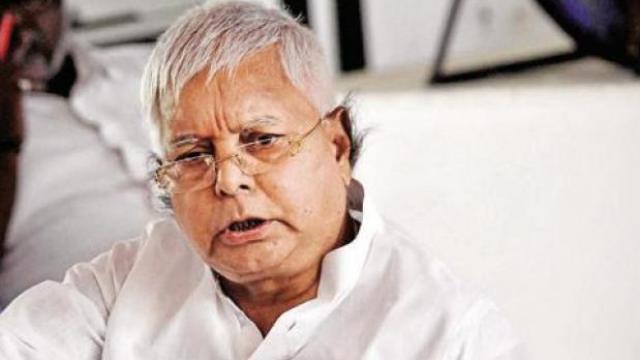New Delhi: The Supreme Court has decided to revisit its 2010 verdict in the disproportionate assets case of former Bihar Chief Minister Lalu Prasad Yadav in which it had held that the state government has no authority to file an appeal against acquittal in cases probed by central agencies.
The issue cropped up as the Chhattisgarh government had to rush to the apex court in 2011 challenging the acquittal of Amit Jogi, the son of former Chief Minister Ajit Jogi, in a 2003 murder case as the CBI had not filed the appeal within the stipulated period.
However, during the interregnum, the apex court’s three-judge bench in 2010 had delivered a verdict in the Yadav DA case that the CBI, which was the prosecuting agency in the fodder scam, had the right to challenge the orders of the subordinate court and the state government had no locus standi.
When Jogi’s matter came up last week in the apex court, the Chhattisgarh government doubted the correctness of the 2010 verdict in Yadav’s case and a bench of Justices S K Kaul and K M Joseph directed that the matter be referred to a larger bench.
“Counsel for the State of Chhattisgarh seeks to doubt the judgment of this Court in Lalu Prasad Yadav and others versus State of Bihar and others, which is of a three-judge bench,” the bench said.
“We are thus of the view that it may be appropriate that the matters be placed before a three-judge bench itself so as to avoid further duplication of the hearing. The matters be thus, placed before Chief Justice of India for appropriate directions,” it said.
Advocate Sumeer Sodhi, appearing for the Chhattisgarh government, said that the apex court’s judgement in the Lalu Prasad Yadav case is per incuriam (bad in law).
He said the 2010 judgement needs to be reconsidered as it affects the substantial rights of all states to file an appeal against acquittal of an accused in a case investigated and prosecuted by the Central Bureau of Investigation or any other central agency.
April 1, 2010 the top court had held that the Bihar government did not have the authority to file an appeal in the Patna High Court against the acquittal of Lalu Prasad Yadav and his wife and former Bihar chief minister Rabri Devi in a disproportionate assets case which was prosecuted by the CBI.
It had held that the Centre and the CBI alone are the competent authorities to file the appeal against acquittal of an accused and the state government is excluded to challenge the trial court’s order under the law.
The Chhattisgarh government and the CBI had challenged the acquittal of Amit Jogi by the trial court in 2007 in the NCP leader Ram Avtar Jaggi murder case.
The state government had filed the appeal before the high court in 2007 challenging his acquittal but the petition was dismissed in 2011 on the ground that only the CBI, being a prosecuting agency, had the jurisdiction to file the appeal.
After three-and-a-half years, the CBI filed an appeal against the acquittal order of the trial court but it was dismissed by the high court on the ground of delay of over 1,300 days.
December 6, 2016, the top court had asked the CBI to come up with strong grounds for seeking condonation of delay on filing the appeal against the acquittal of Amit Jogi.
The CBI had earlier contended before the apex court that it was not granted permission to file the appeal by the competent authority and when it got the permission, the appeal was filed.
The Chhattisgarh government had argued that when CBI did not file the appeal before the high court, the state had filed the appeal but it was dismissed following the 2010 apex court verdict.
It had said that the verdict in Yadav’s case was erroneous and the CBI could not be allowed to have unbridled power of resorting to ‘pick and choose strategy’ for filing appeal.
“The decision of this court in Lalu Prasad Yadav’s case, it is submitted, requires reconsideration for not only it is flawed in the manner in which it is construed in the statute, but unwittingly upset the delicate balance between the union and the state in relation to administration of justice,” the state government’s appeal has said.
Jaggi was shot dead on June 4, 2003 and five persons were arrested by the state police and a charge sheet was filed against them holding that motive of the murder was robbery.
The case was handed over to the CBI in January 2004 and the agency filed a charge sheet stating that Jaggi was shot dead by convict Chiman Singh for political reasons as a rally was being organised by him in Raipur on June 10, 2003, which posed a political threat to then chief minister Ajit Jogi and his son Amit Jogi.
The CBI had alleged the murder was committed after a criminal conspiracy between Amit Jogi and others.
The trial court had May 31, 2007 acquitted Amit Jogi and convicted all other 28 accused persons in the murder case.
PTI
